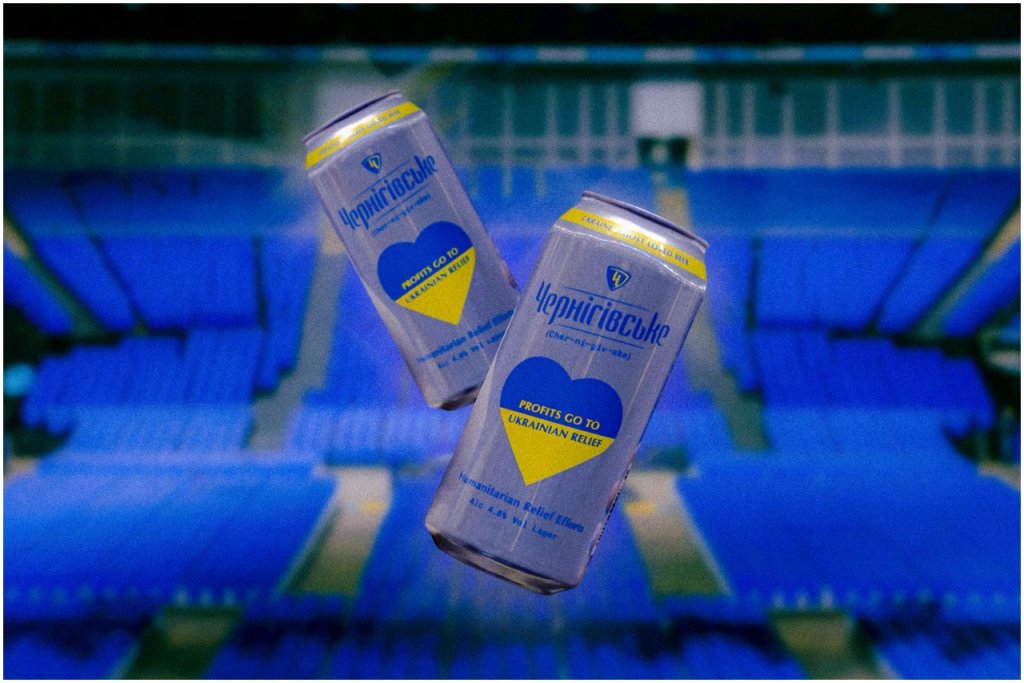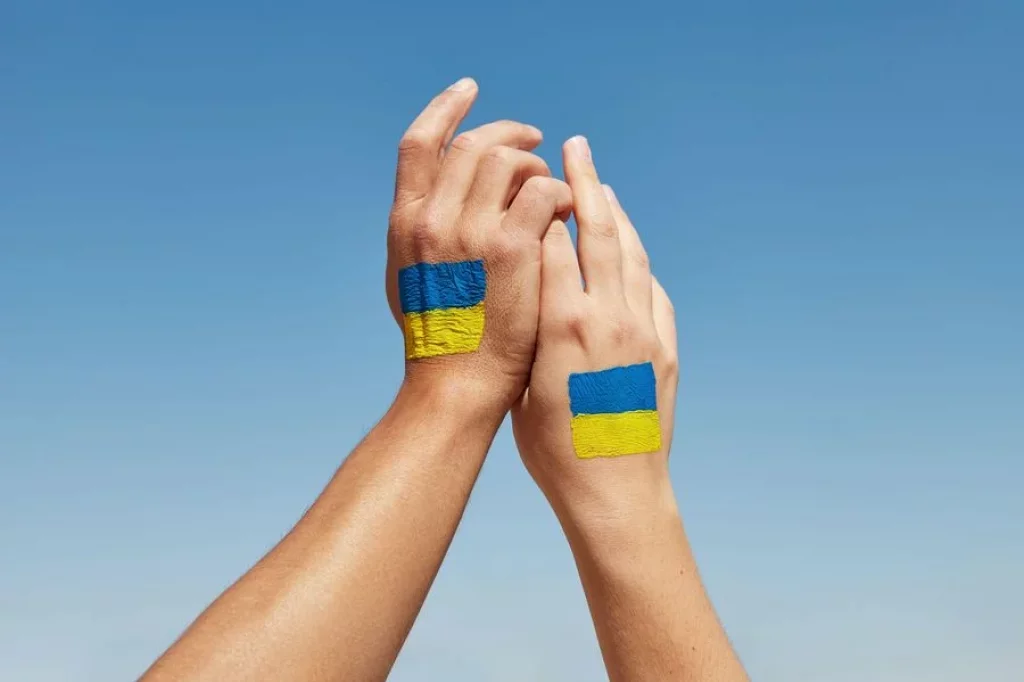In April 2022, AB InBev’s Ukraine based Marketing Director was forced to flee her home. Like many brands, drinks giant AB InBev was working hard to support all its employees impacted by the invasion – and searching for ways to do more. But they were a brewing company. What could they do in the face of an international crisis?
Action
The company’s Ukrainian Marketing Director suggested that they use what they knew best: beer. So, AB InBev launched Chernigivske, Ukraine’s most-loved beer, to new markets. Beer could serve as a positive, relatable platform to introduce the public to genuine Ukrainian relief efforts – and all profits would go to humanitarian relief.
Budweiser Brewing Group UK&I’s (BBG) marketing team and Hanover had to turn an unknown beer into a symbol of support for Ukraine in order to drive sales that would be converted to funds for humanitarian efforts.
So, we put the story at the heart of Chernigivske’s UK brand launch. We told a story about the people behind the headlines, AB InBev’s Ukrainian Marketing Director – even breaking down the language to make Chernigivske easy to pronounce – while offering British consumers an opportunity to contribute to credible relief efforts through the everyday behaviour of buying beer.
Our tactics had two key elements to amplify the narrative: driving buzz through media and social activity and working with retail partners to make their customers excited.
First came the announcement, dropping to media and social channels with the humanitarian pledge, bold visuals and a promise of the product landing on British shelves soon. Social media content mirrored this angle – channelling the authenticity of Chernigivske as a symbol of support for Ukraine. The story centred the purpose of Chernigviske and AB InBev’s Ukraine based Marketing Director’s personal drive behind the project.
To amplify awareness of Chernigivske, BBG needed on- and off-trade partners to rapidly put Chernigivske in front of consumers. The company gathered major hospitality venues, including iconic British landmarks Wembley Stadium and the O2in addition to Punch Pubs, Matthew Clark, Trust Inns and others. Beer fans could now support Ukraine at pubs around the country, while football fans could enjoy Chernigivske during the FA Cup final and EPL Games. The publicity around partnerships and organic social posts from consumers heightened brand awareness (and sales) even further.
Several retailers signed up, including Morrison’s, Co-op, ASDA, Lidl, Costco, Spar, The Food Warehouse (Iceland), Amazon and Tesco. Partnership meant Budweiser Brewing Group was able to seamlessly pour a Ukrainian beer into British glasses. Visibility on supermarket shelves reinforced awareness of Chernigivske, and by extension Ukrainian relief aid, every time consumers went shopping – and allowed Brits to include a product with a purpose in their weekly shop. The partners’ enthusiasm amplified this effect and helped us keep drumbeat updates to the media exciting.
Impact
We measured our success on two objectives: how well we raised awareness of Chernigivske, and how well that awareness translated to sales (aka, fundraising for humanitarian efforts).
Through 43 pieces of high-value coverage, including consumer titles like the Sun, Mirror and Independent, and trade coverage to ignite sector interest in the likes of The Grocer, we created 151,291,648 media impressions.
On social channels, 13 corporate posts led to 77,710 social impressions and 2,830 engagements. Chernigivske generated 1,492 posts on Twitter in the UK – what’s more, the beer had an unheard-of 1% negative sentiment on Twitter.
Most importantly, Chernigivske raised over £1 million raised for humanitarian relief.
Chernigivske was far more than a PR stunt. In fact, it wasn't about PR at all – our activity was just one element of a brand diverting resources at every level of the business to support a community in crisis. BBG and Hanover’s awareness-raising about these efforts brought in funds for Ukrainian humanitarian relief, and did so by taking a risk – pushing BBG out of the comfort zone of being ‘just a brewer’ and talking about purpose at a time when many brands were failing to do so authentically.









